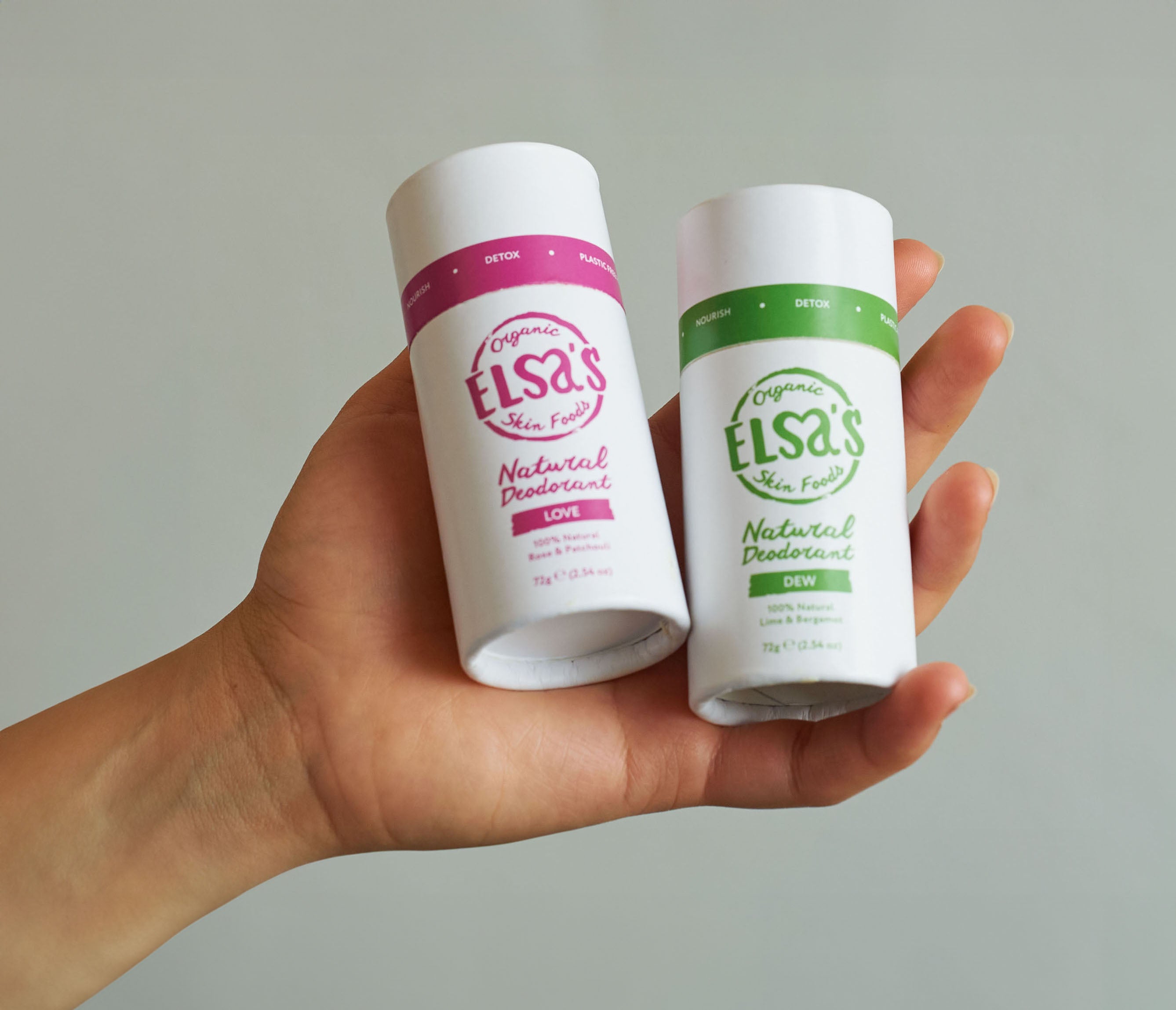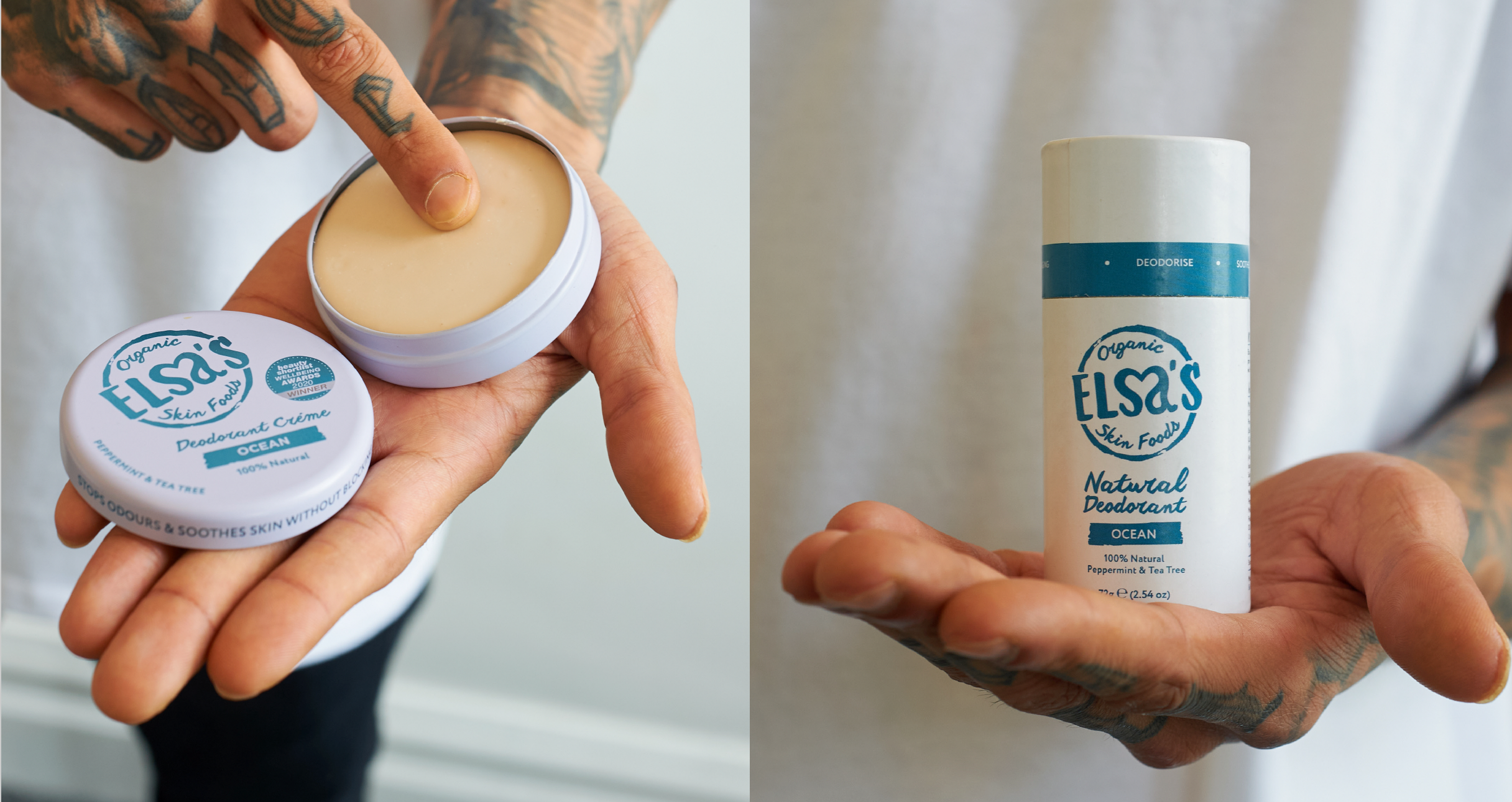At Elsa’s Organic Skinfoods, we love that interest in aluminum-free natural deodorants is continuing to grow. Learning which natural deodorant ingredients to avoid is important when choosing a deodorant that aligns to your health standards.
Choosing deodorants with skin-friendly ingredients is important for safety, effectiveness, and overall skin health.
Decoding Ingredient Lists: A Critical First Step
The journey towards choosing a safer deodorant begins with the ingredient list. Ingredients are listed in order of concentration but be cautious of the term "natural." This label may not always mean a product is safer or better for the environment, as it is not closely monitored.
The Misconception of 'Natural' Deodorants
The journey towards choosing a safer deodorant begins with the ingredient list. Ingredients are listed in order of concentration. Be cautious of the term "natural." This label is not strictly regulated and as a result, can be misleading.
Ingredients to Approach with Caution
- Bicarbonate of Soda (Baking Soda): A key concern with baking soda is its alkaline nature, which can lead to the disruption of a vital skin barrier that protects against bacterial infections, and environmental pollutants, and regulates moisture. For individuals with sensitive skin, this disruption may result in irritation, and dryness, and can worsen skin conditions. Choosing baking soda-free deodorants can prevent these adverse effects.
- Propylene Glycol: This substance enhances the skin's absorption of other ingredients, potentially supporting the entry of bad chemicals into the bloodstream. Repeated skin exposure to propylene glycol, especially in high concentrations, may lead to irritation and systemic toxicity in sensitive individuals.
- Alum Salts: Alum salts, despite being marketed as a natural alternative, still contribute aluminum to the body, which is associated with various health concerns. The debate over their safety highlights the need for caution.
- Alcohol: The quick-drying and antimicrobial properties of alcohol can be appealing, but its use can strip the skin of essential moisture and lipids. This can lead to irritation. Alcohol's drying effects can exacerbate skin dryness and irritation, making alcohol-free deodorants a preferable choice for those with sensitive skin or seeking to maintain optimal skin health.
- Fragrance: Fragrances can contain sensitizing chemicals that trigger allergic reactions, dermatitis, and other skin sensitivities. The potential endocrine-disrupting properties of some fragrance ingredients further complicate their safety profile, emphasizing the need for transparency and caution.
Better Alternatives and Ingredient Choices
For those with sensitive skin or health concerns, seeking out deodorants with straightforward ingredient lists is advisable. Look for natural ingredients that combat odour-causing bacteria such as magnesium, arrowroot powder, and essential oils for gentle, effective odour control.
Explore Elsa’s Ingredients for more information about the ingredients we use in our natural deodorants.
The Path to Safer Deodorant Use
Elsa's Organics ensures consumers can enjoy the dual benefits of effective odour control and healthy, hydrated skin, free from the concerns associated with conventional deodorant ingredients. Our deodorants also use coconut oil and shea butter for a soothing nourishing effect. Elsa's Organics Skinfoods was established when its founder developed a homemade deodorant natural for her children. Elsa's Organics launched in 2018 starting with a range of deodorant scents which have the same highly effective natural deodorant recipe.
Why not explore the award-winning Elsa's Organics Skinfoods Ocean deodorant stick, infused with refreshing peppermint and tea tree oil for a naturally fresh fragrance that smells amazing?
Sources:
- indbodygreen. "Is Baking Soda Good For Your Skin? A Dermatologist Weighs In." Retrieved from mindbodygreen.com/articles/is-baking-soda-good-for-your-skin-from-dermatologist. This article discusses the dermatological perspective on the use of baking soda as a skincare ingredient, highlighting both its benefits and potential drawbacks.
- Breast Cancer UK. "Aluminium Salts as Antiperspirants." Retrieved from breastcanceruk.org.uk/resources/aluminium-salts-as-antiperspirants/. This resource offers an in-depth look at the use of aluminium salts in antiperspirants and discusses the potential health implications associated with their use.




